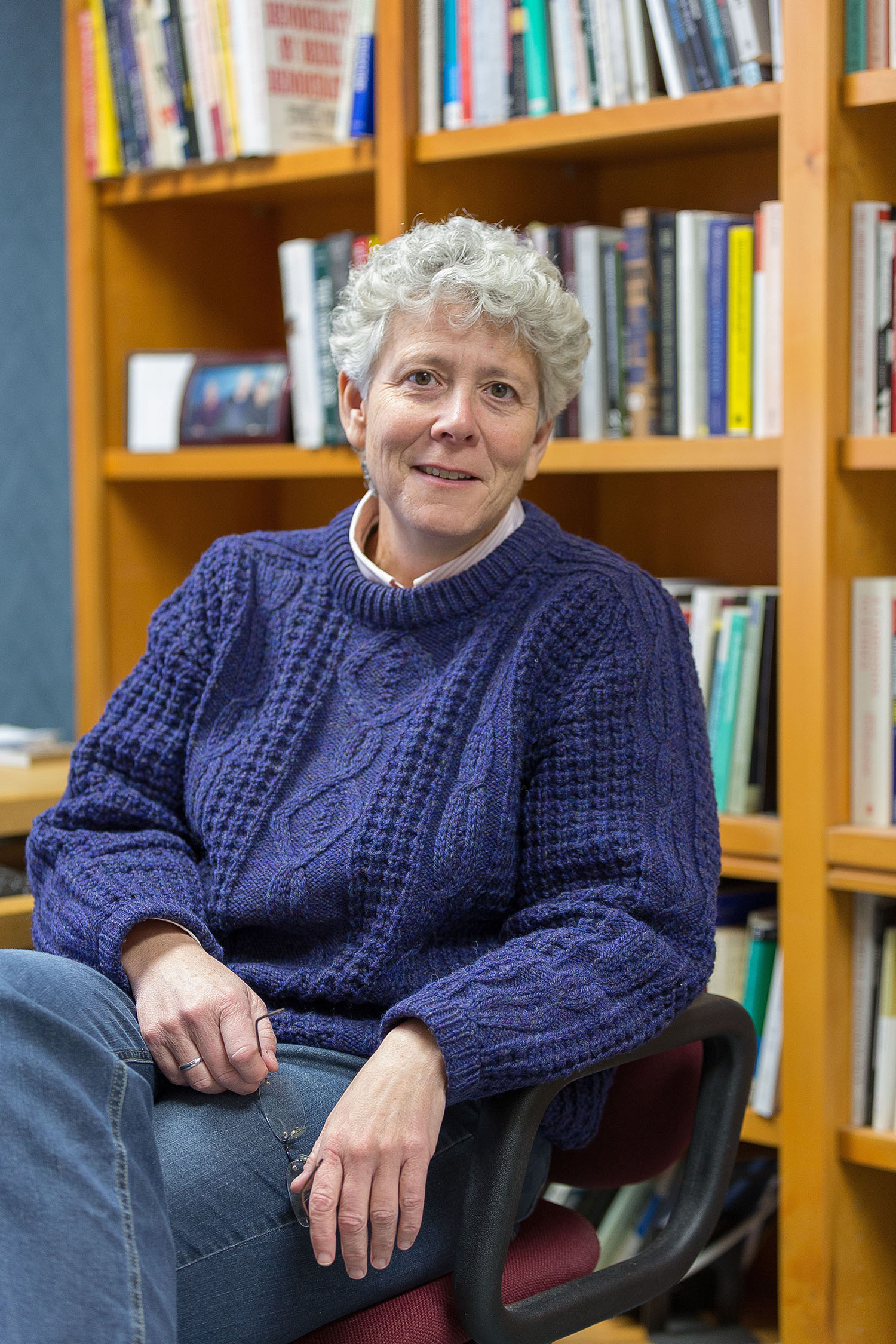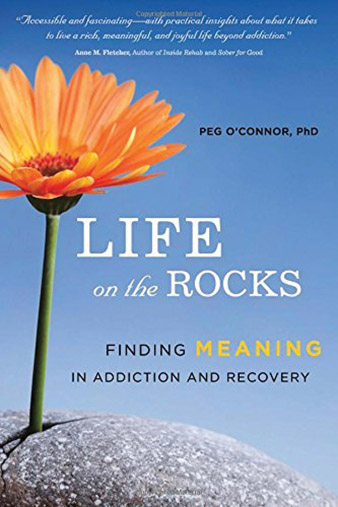BETWEEN THE LINES: LIFE ON THE ROCKS: FINDING MEANING IN ADDICTION AND RECOVERY
 My name is Peg O’Connor. I am an alcoholic and I am a philosopher. I think many addicts are philosophically inclined and are searching for a or the meaning of life. We just tend to look in the wrong places for a long time. Our lives have provided many opportunities to confront some of the most basic questions about life, which are also some of the most vexing philosophical questions. Life on the Rocks brings these questions and ways of living into sharper focus, without assuming any familiarity with philosophy.
My name is Peg O’Connor. I am an alcoholic and I am a philosopher. I think many addicts are philosophically inclined and are searching for a or the meaning of life. We just tend to look in the wrong places for a long time. Our lives have provided many opportunities to confront some of the most basic questions about life, which are also some of the most vexing philosophical questions. Life on the Rocks brings these questions and ways of living into sharper focus, without assuming any familiarity with philosophy.
 Addicts struggle with issues of self-identity, moral responsibility, self-knowledge and self-deception, free will and determinism, fatalism, the nature of God, and their relationship with others. These are deeply philosophical concerns, which the natural and social sciences addressing addiction pass right by because they do not lend themselves to empirical investigation. As philosopher Ludwig Wittgenstein (1889–1951) notes, “We feel that even if all the possible scientific questions be answered, the problems of life have still not been touched at all.” It is a colossal understatement to say that addiction is a huge problem of living.
Addicts struggle with issues of self-identity, moral responsibility, self-knowledge and self-deception, free will and determinism, fatalism, the nature of God, and their relationship with others. These are deeply philosophical concerns, which the natural and social sciences addressing addiction pass right by because they do not lend themselves to empirical investigation. As philosopher Ludwig Wittgenstein (1889–1951) notes, “We feel that even if all the possible scientific questions be answered, the problems of life have still not been touched at all.” It is a colossal understatement to say that addiction is a huge problem of living.
Addiction can provide an (unwanted) opportunity for a person to confront the most basic existential dilemma: Shall I live or shall I die? Those who choose the former have a Herculean task ahead of them, and ultimately must answer the question, “How should I live?” The first philosophers grappled with that question, and we still grapple with it today. We philosophers have a treasure trove of concepts to help people ask and answer that question for themselves. This is the usefulness and value of philosophy. Philosophy can help provide many ways to live these questions and show that there is not only one right way to do so.
I’ve always said I feel like a throwback in the world of philosophy. My orientation belongs firmly in the ancient world of Greece circa 450 BCE, because they understand philosophy as an activity and as a way of life. To be philosophically oriented is to be curious about everything, but especially the nature of the world, the human condition, and an individual’s place in the world. Philosophy also aims at prescription, which is most clearly seen in moral philosophy where the most basic concern is how one ought to live.
Furthermore, I think of ancient philosophy as the origin of self-help. Socrates, Plato, and Aristotle were concerned with living a good life, which requires a great deal of self-examination. Aristotle (382–322 BCE) argued that the happiest life is the virtuous life and only those who have the right sort of concern for their character can realize this. Friends matter importantly to one’s character and happiness. The wrong friends can also make us worse off. Any addict would say the same.
The ancients understood the “care of the soul” as the most important undertaking in human life. As the term “soul” may leave some people uncomfortable, I substitute “person” or “self” for “soul.” Care of one’s self is the most important undertaking in life, and making this claim raises a very important question: Just what is a self?
Consider this question I received from a friend who had been sober for a short while. She asked, “Am I the same person now that I am sober as I was when I was still drinking?”
When my friend asked this question, I was teaching a class in modern (1600–1800) philosophy and we were reading John Locke’s An Essay Concerning Human Understanding (1690). One question philosophers were grappling with at the time was, “What unifies a person such that his identity maintains continuity over time?” One answer Locke offers is memories. Memories are like the “shrink-wrap” around our consciousness that makes each of us either have or be a continuous self.
I sometimes asked my students, “What about regular blackout drinkers…? Do such people have a unified self or a divided self? No self? Multiple selves?”
Locke claims that a person’s identity doesn’t extend to that which he does not remember. The conclusion is that a person who has no memories of his past has no identity. This claim seemed as extreme to my students and my friends as it does to me, in part because even though we may not recall particular incidents, we still believe that they are part of our identities. We were also uncomfortable with the implications it had for responsibility. If I don’t remember doing something am I not responsible for it? Surely this is not a tenable position.
This discussion about Locke and blackout drinkers is what prompted me to explore addiction and recovery through the lens of Western philosophy.
For me, as a philosopher and as an alcoholic, questions about addictions are, at rock bottom, questions about the meaning of life. No discipline frames these sorts of questions as well as philosophy. I am staking a strong claim that philosophy is relevant—perhaps more than ever—in our world and in our lives.
—by Peg O’Connor ’87
This abridged introduction to Life on the Rocks: Finding Meaning in Addiction and Recovery, by Peg O’Connor (Central Recovery Press, 2016) is printed with permission.
Peg O’Connor ’87 is professor of philosophy and gender, women, and sexuality studies at Gustavus Adolphus College, Minnesota. She is the author of the popular Psychology Today blog “Philosophy Stirred, Not Shaken” and contributor to the Pro Talk series at Rehabs.com. In her writing, which has appeared in the New York Times and the Huffington Post, she uses philosophy to illuminate the complexities of addiction as a lived experience. A recovering alcoholic for 28 years and a philosophy professor for 20, philosophy helped the author get and stay sober. She lives in St. Peter, Minnesota.
